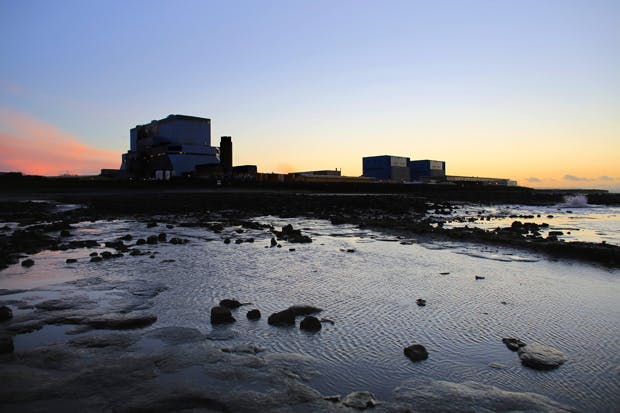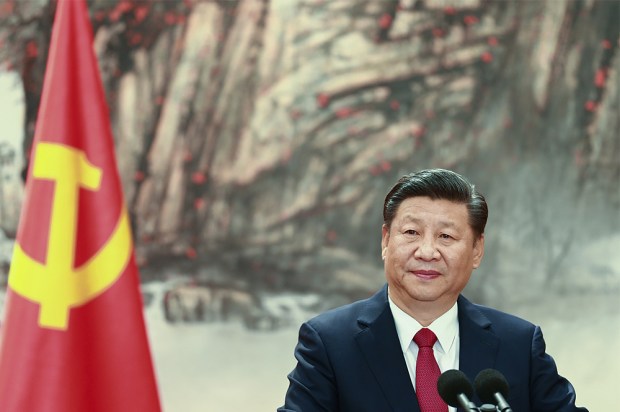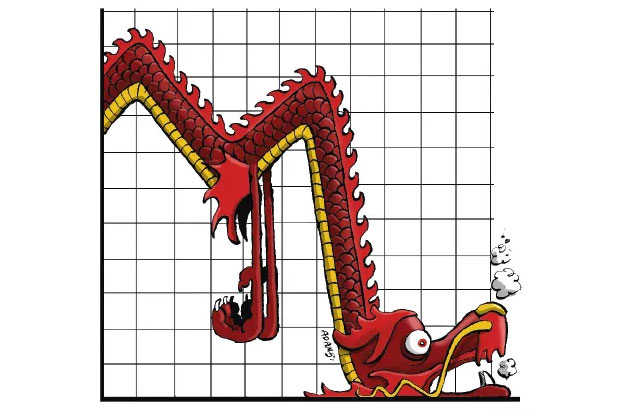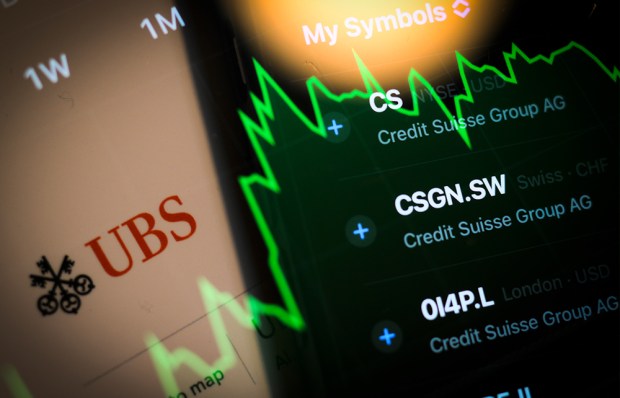There are reasons why Theresa May might harbour doubts about the Hinkley Point nuclear project — chiefly its unproven French technology and the high probability of time and cost overruns — but the fear expressed by her aide Nick Timothy that ‘the Chinese could use their role to build weaknesses into computer systems which will allow them to shut down Britain’s energy production at will’ sounds — even to a Sino-cynic like me — far-fetched. As I wrote here during President Xi Jinping’s visit last year, ‘The least sinister thing about the Chinese is their money. A ten-digit cheque… even from China National Nuclear Corporation… does not carry a ‘backdoor’ listening device.’
That said, we should stop kidding ourselves about the growing warmth of our economic relations with China, which was one of George Osborne’s propaganda themes. And we should ignore the Xinhua state news agency’s warning that the new Prime Minister’s apparent ‘suspicion towards Chinese investment’ threatens ‘the arrival of the China-UK golden era’. The truth is that to the Chinese we are a minor trading partner with some useful services to sell; we’re never likely to find them straightforward to deal with, or respectful of western concepts such as intellectual property and contract law.
From time to time they may make strategic investments here (as they have in Heathrow and Canary Wharf) because they need to do something with all that foreign exchange and they believe such gambits buy influence. We should offer them a fair return on their investments, and a demonstration of how to do business in a decent way. But otherwise the guiding principle of UK-China dealings should be to bank the cheques and sup with a long spoon.
Blue lagoons
Let’s turn our attention to ‘tidal lagoons’: you may have heard that phrase in discussion of alternatives to Hinkley Point and wondered what it means. It refers to a£1 billion project, awaiting ministerial approval, to build a walled lagoon in Swansea Bay that would generate (through largely British-built turbines) electricity on the ebb and flood of every tide, 14 hours a day for a project lifetime of 120 years. It could be brought into operation within five years — but to make that happen it requires subsidy at levels comparable to offshore wind or new nuclear generation; it also requires millions of tonnes of concrete and aggregates from quarries in Cornwall and elsewhere, and will radically alter the local environment for sea life and wading birds.
So lagoon power is not without teething problems. But they look relatively modest compared to, say, betting our energy future on nuclear reactor designs that might not work at all and storing the toxic waste afterwards. Once proven, the Swansea project could be rapidly scaled up, with a second lagoon at Cardiff that would be almost 12 times larger and a string of other sites along the English and Welsh west coast.
The determined entrepreneur behind this scheme, Mark Shorrock, claims lagoon power could provide 8 per cent of UK electricity demand, more than Hinkley Point, at the lowest long-term cost per megawatt hour of any form of generation. The technology could also be exported anywhere in the world (including China) that has coastlines with big and predictable tides.
The government will decide the fate of the Swansea lagoon in the autumn: since it carries no Osborne fingerprints or Chinese connections, I see no reason at all why Mrs May should stand in its way.
Still writhing
Nervousness over the health of Italian, Irish and other European banks, following another round of ‘stress tests’, is a reminder that, in the forgotten era before the Brexit vote, economists and central bankers were deeply worried about unresolved weaknesses in the global banking system and a huge build-up of debt combined with sluggish growth, driven partly by slowdown in China, partly by Europe’s failure to reform: the combination of factors I once called ‘the writhing python of doom’. That monster has not gone away, and if we have a UK interest-rate cut to an all-time low this week, it will be just one of many central bank stimulus manoeuvres over the coming season. The prospect of a return to monetary normality and stable growth is as far away as ever. Autumn will be turbulent, and pro-Brexit commentators are deluding themselves if they think a handful of positive news items suggest the trajectory is otherwise.
Summer pleasures
On that regrettably downbeat note, I’m en route to my Dordogne retreat for August. For the record, this despatch comes to you from Le Comptoir à Huîtres, a very fine fish restaurant in Dieppe — so life isn’t all bad. I will report on the state of the French economy, which registered zero second-quarter growth, compared with 0.6 per cent for the UK, and whether it makes any difference to the charm of summer life. I’ll also survey my French (and British expat) neighbours’ sentiments on their reactions to Brexit, the subject that can’t be avoided.
It even pervaded the cultural excursions which, for me, occupied July from the Ring cycle at Gateshead to am-dram north and south and the joyful Ryedale music festival. The arts world is traumatised by the potential loss of European funding streams (which no one believes will be replaced by largesse out of the ‘£50 million a day’ we used to send to Brussels) and freedom of movement for performers. There are also fears that a prolonged downturn will dent the philanthropic giving which, for most arts projects, is now far more important than the diminished flow of taxpayer support. So I was heartened, at July’s last concert, to be approached by an audience member with an urgent question: ‘How do I become a Gold Patron of your festival? I’ve just made a fortune on Spectator Money’s share tips.’
Got something to add? Join the discussion and comment below.
Get 10 issues for just $10
Subscribe to The Spectator Australia today for the next 10 magazine issues, plus full online access, for just $10.















Comments
Don't miss out
Join the conversation with other Spectator Australia readers. Subscribe to leave a comment.
SUBSCRIBEAlready a subscriber? Log in